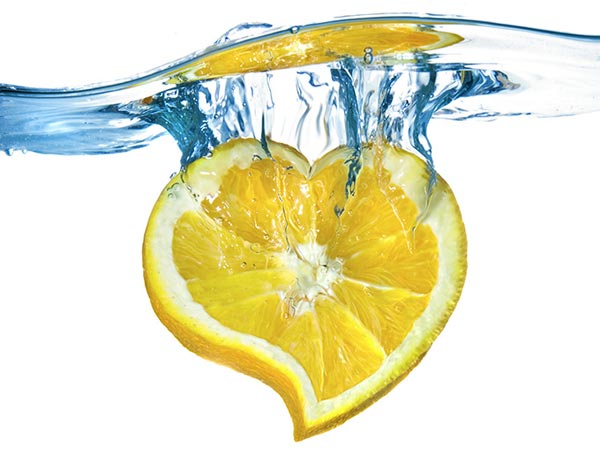This marks another important milestone in my journey: My first blog post! I’m starting with something very simple but ultra important to me. It’s something I incorporate in my daily life and I think everyone should consider it. So let’s talk about LEMONS!

Did you know?
The Ancient Egyptians believed that eating lemons and drinking lemon juice was an effective protection against a variety of poisons, and that recent research has confirmed this belief? That’s because lemons are high in vitamin C and they can prevent the disease scurvy which was common among sailors stuck on ships for months. Even today, the British Navy requires ships to carry enough lemons so that every sailor can have one ounce of juice a day.
What’s a Lemon? Lemons are a yellow citrus fruit grown on an evergreen tree. It blooms a white flower and produces fruit all year round. Even the leaves of a lemon tree can be used to make tea and in the preparation of cooked meats and seafoods. Lemons have a sour taste to them due to the fact that its juice contains 5-6% acid.
Health Benefits Key nutrients in lemons include vitamin C, fibre, calcium, iron, magnesium, phosphorus, potassium, zinc, copper, and a variety of B vitamins, to name a few. Because of these assets, lemons have a laundry list of health benefits including cleansing the bloodstream and liver, aiding digestion, boosting the immune system, preventing heart disease and cancer, lower blood cholesterol levels, lower blood pressure, sooth insect bites and migraines, reduce inflammation, and help in fat metabolism. Although lemons contain citric acid, lemon juice alkalines the body, which helps to maintain an optimal pH balance.
When and How? My fridge is forever stocked with organic lemons. Even when I’m on vacation, I will look for a grocery store to buy lemons, or ask for lemon in my warm water at the restaurants!
The very first thing I do when I wake up every morning is pour myself a glass of warm water, squeeze the juice of a third to half a fresh lemon into it, and drink up! I wait 20-30 minute before eating or drinking anything else. Doing this on an empty stomach will help absorb nutrients more easily, it kick-starts my day with a clean and disciplined approach, and it freshens breath! Drinking lemon water before meals seems to help stimulate gastric juices and help digestion. In general, drinking liquids a while before meals can reduce our appetite and thus help prevent overeating.
Lemon water is a great cleanser, purifier, rejuvenator, and detoxifier, especially for the liver, which is our powerhouse for detoxification! If you start breaking out like an awkward teenager after implementing lemon water into your diet, it’s working! Your body is ridding of its toxins through your skin and acne is one way of detoxifying.
For easier juicing, roll lemons back and forth across the countertop for a few moments, or even better, submerge them in hot water for 15 minutes – they will yield nearly twice as much juice.
Other Uses The lemon’s white flesh and the zest (shavings from the outermost part of the rind) can also be eaten. The white part of the lemon peel can be rubbed against gums to prevent bleeding. Another way to make a lemon drink is to place freshly squeezed lemon juice in ice cube trays, freeze, and store the cubes in plastic bags in the freezer. The lemon juice cubes can then be added to herbal teas or defrosted to use whenever you need fresh lemon juice!
Lemon juice can be used in salads and even in dish washing liquids – helps cut fats and oils! Lemons can also be used to clean your vegetables by rinsing them in lemon water and sea salt. Have a dirty tea or coffee cup? Squeeze some lemon juice in there, let sit for a few minutes, and rinse! Use lemon juice to clean discoloured utensils, too! To make furniture polish, mix one part lemon juice and two parts olive oil. Rub kitchen and bathroom faucets with lemon peel. Wash and dry with a soft cloth to shine and remove spots.
The list goes on! You can pretty much use lemons to clean anything – your body and your home!
Storage Select firm and heavy fruit with a rich yellow colour. The skin should be smooth with a slight gloss. Avoid lemons that are dark yellow or dull in colour, have hardened or shriveled skins, contain soft spots, or have a mold surface.
Lemons can be stored in room temperature for 2 weeks, or in a plastic bag, in the crisper compartment of the fridge for up to 6 weeks. They can also be stored in a tightly sealed jar of water in the fridge.
Things to consider If you suffer from heartburn, kidney or gall bladder problems or have a citrus allergy, take caution before trying these remedies. To protect your teeth enamel, wait at least half an hour before brushing your teeth after chewing, drinking or rinsing with lemon juice. People who have or are prone to UTI should avoid citrus fruits, as they produce alkaline urine, which encourages bacterial growth

